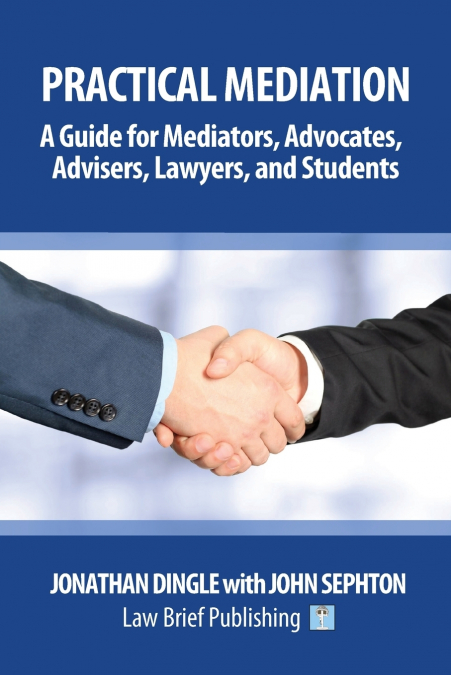
John Sephton / Jonathan Dingle
 Librería Perelló (Valencia)
Librería Perelló (Valencia)
 Librería Aciertas (Toledo)
Librería Aciertas (Toledo)
 El AlmaZen del Alquimista (Sevilla)
El AlmaZen del Alquimista (Sevilla)
 Librería Elías (Asturias)
Librería Elías (Asturias)
 Librería Kolima (Madrid)
Librería Kolima (Madrid)
 Donde los libros
Donde los libros
 Librería Proteo (Málaga)
Librería Proteo (Málaga)
Mediation is an art not a science. It is for conversations not forced conversions. A process for problems and possibilities. As a process, it can be taught, learned, and applied. It is a tool, one of many, for people to use or abuse at their pleasure, or in their ignorance, as they interact with others. It is international and universal, the product of at least three millennia of human refinement.Like those who choose, or are required, to engage in it – mediation is diverse; it can be provided in a rainbow of formats and with every degree of (in)formality. Perversely, mediation is capable of being gallingly run yet finding glittering success; or of being brilliantly run whilst seemingly producing no tangible progress.To understand mediation is easy: it is analogous to painting, shoes, and dinner parties. To learn basic mediation skills is also easy: every person, excusing sociopaths, already has the ideas of mediation hard-wired. To manage a mediation well is less easy: but with thought and practice it is something that most genuinely neutral and sufficiently interested people can be trained to do. To use mediation effectively, though, can be challenging: advocates and advisers have much to learn.This manual is intended to guide mediators (new and old, neutral and bold), advocates, advisers, and students on the path to know and apply mediation skills, and to use the tools to internationally accepted standards. It provides a full knowledge of facilitation and evaluation, and acts as a course reference work for those studying mediation in many jurisdictions. It is also intended to be an enjoyable and informative essay on human interaction and one of the myriad means that can be adopted to resolve disputes.The authors have crafted it as the source book for the training courses run by the leading faculty in the subject, that of the Society of Mediators, in the United Kingdom and around the world. But it offers much more than a manual for teaching: it is the collective wisdom of more than fifty years of mediation experience from the faculty, and as such is a timeless piece for all those interested in using, choosing, or carousing mediation.ABOUT THE AUTHORSAn expert mediator with a better than 95% settlement rate, Jonathan Dingle FRSA shares his internationally-known expertise gained over some three decades as mediator to the Elite Panel. A leading mediator trainer working from South Africa to New Zealand and India to Ireland, JD has been instrumental in the development of mediation in this country and especially the West Indies, where he is an Honorary Member of a number of Associations. He is a Member of the Chartered Institute of Arbitrators and a Fellow of the Association of Arbitrators (South Africa).As a former Naval Officer John Sephton held senior positions in Human Resource Management within Career Management, Learning & Development and Strategic Workforce Planning. As a mediator his practice is focused upon workplace and employment and he is familiar with the wide variety of disputes that can occur in that environment, ranging from breakdowns in communication to bullying & harassment. He is a Chartered Fellow of both the Chartered Institute of Personnel and Development and the Chartered Management Institute.